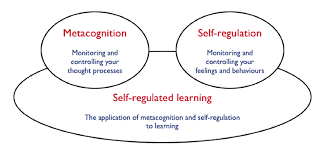Metacognition
Metacognition Vision Statement
Here at Leamington, we have embarked on an exciting journey in becoming a Thinking School. Our school Mission Statement specifies that we will work to provide a happy, secure and stimulating environment in which every child matters and is valued and encouraged to achieve their full potential through the development of a love for learning and a desire to expand their knowledge.
In order to fulfil this, our aim is to ensure that every child has the necessary skills and attributes to be successful in the next stage of their learning. We believe that by becoming a Thinking School and creating ‘Leamington Metalearners’ we are fulfilling our Mission whole heartedly.
What is a Thinking School?
A Thinking School takes a whole school approach to developing pupils’ cognitive capability and intelligent learning behaviours.
In other words – we are explicitly ‘thinking about thinking’ using an evidence based approach.
The experts say…
“an educational community in which all members share a common commitment to giving regular careful thought to everything that takes place. This will involve both students and staff learning how to think reflectively, critically and creatively, and to employing these skills and techniques in the co-construction of a meaningful curriculum and associated activities. Successful outcomes will be reflected in student’s across a wide range of abilities demonstrating independent and co-operative learning skills, high levels of achievement and both enjoyment and satisfaction in learning. Benefits will be shown in ways in which all members of the community interact with and show consideration for each other and in the positive psychological well-being of both students and staff.” (Burden, 2006)
James Mannion offers further clarity by defining:
- Metacognition as ‘monitoring and controlling what’s in your head’,
- Self-regulation as ‘monitoring and controlling how you interact with your environment’, and
- Self-regulated learning as ‘the application of metacognition and self-regulation to learning’.

Why become a Thinking School?
The Sutton Trust Education Endowment Foundation (EEF) ‘Metacognition and Self-Regulation Guidance Report’ defines metacognition as:
“…pupils’ ability to monitor, direct and review their learning. Effective metacognitive strategies get learners to think about their own learning more explicitly; usually by teaching them to set goals, and monitor and evaluate their own academic progress…self-regulated learning is the interaction of cognitive and metacognitive processes as well as motivation.”
When describing the impact metacognition has on disadvantaged pupils it states:
“…disadvantaged pupils are less likely to use metacognitive and self-regulatory strategies without being explicitly taught these strategies. Explicit teaching of metacognitive and self-regulatory strategies could therefore encourage such pupils to practise and use these skills more frequently…’
The Sutton Trust-EEF Teaching and Learning Toolkit, which summarises international evidence, rates ‘metacognition and self-regulation’ as a ‘high impact, low cost approach to improving the attainment of disadvantaged learners’ states: “The potential impact of metacognition and self-regulation approaches is high (+7 months additional progress)”.
Drive Team Metacognition Intent Statement:
Our aim is to develop pupils who are: creative thinkers, resilient problem solvers and reflective questioners, who can work collaboratively and show leadership initiative and will strive to make a positive impact in the world around them.
‘Leamington Metalearners’ will learn to become inquisitive; demonstrating focused questioning skills to their peers and adults. They will be able to understand and verbalise their thinking processes. They will appreciate that learning can be difficult and see their learning as a journey. They will self-reflect and evaluate their own learning journey and be independent in adapting strategies to new situations. They will be able to scaffold their own learning, using acquired tools, strategies and the learning environment around them.
All classrooms will consistently challenge learning through questioning and task design. Clear modelling of thinking processes, reflection and self-evaluation will be embedded in practice. Teacher’s roles will develop as coaches and role models for learners with the aim for learners to then adopt coaching roles. Through peer coaching, children will be less dependent on adult support and use the resources around them. Staff will provide learners with scaffolding tools and support learners in using them dependently and independently.
Our school will have a consistent approach to support and empower our leaners to be ready for an ever changing future. Embedded into the culture, there will be a cohesive environment and teaching approach so that our learners continue to develop their thinking skills on their journey through our school.
Take a look at the following links for more information:
Thinking Matters Page
What is Metacognition and what does it look like in Primary Schools?
